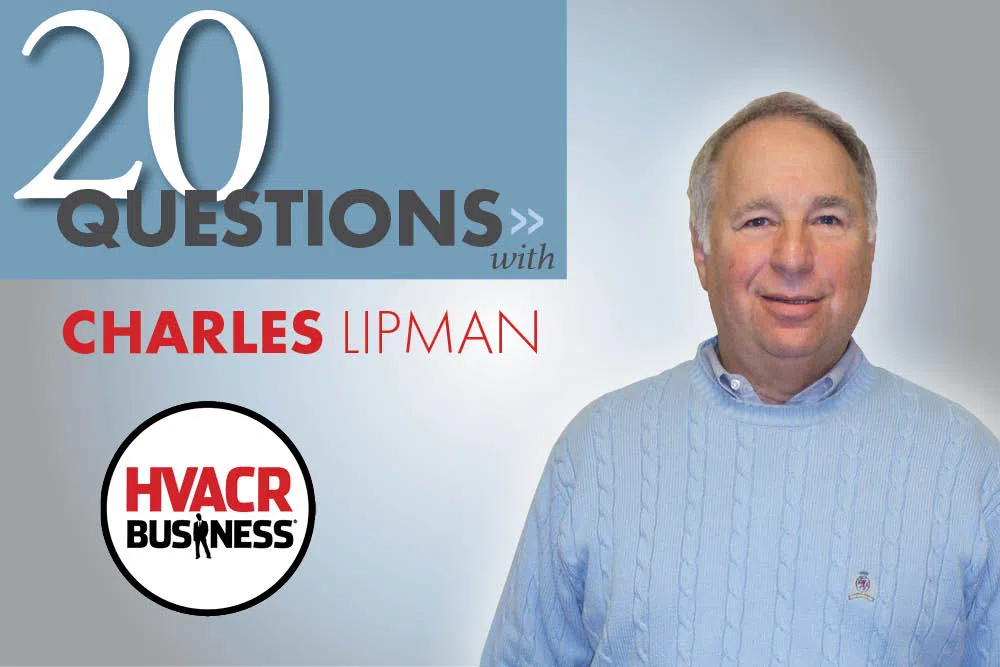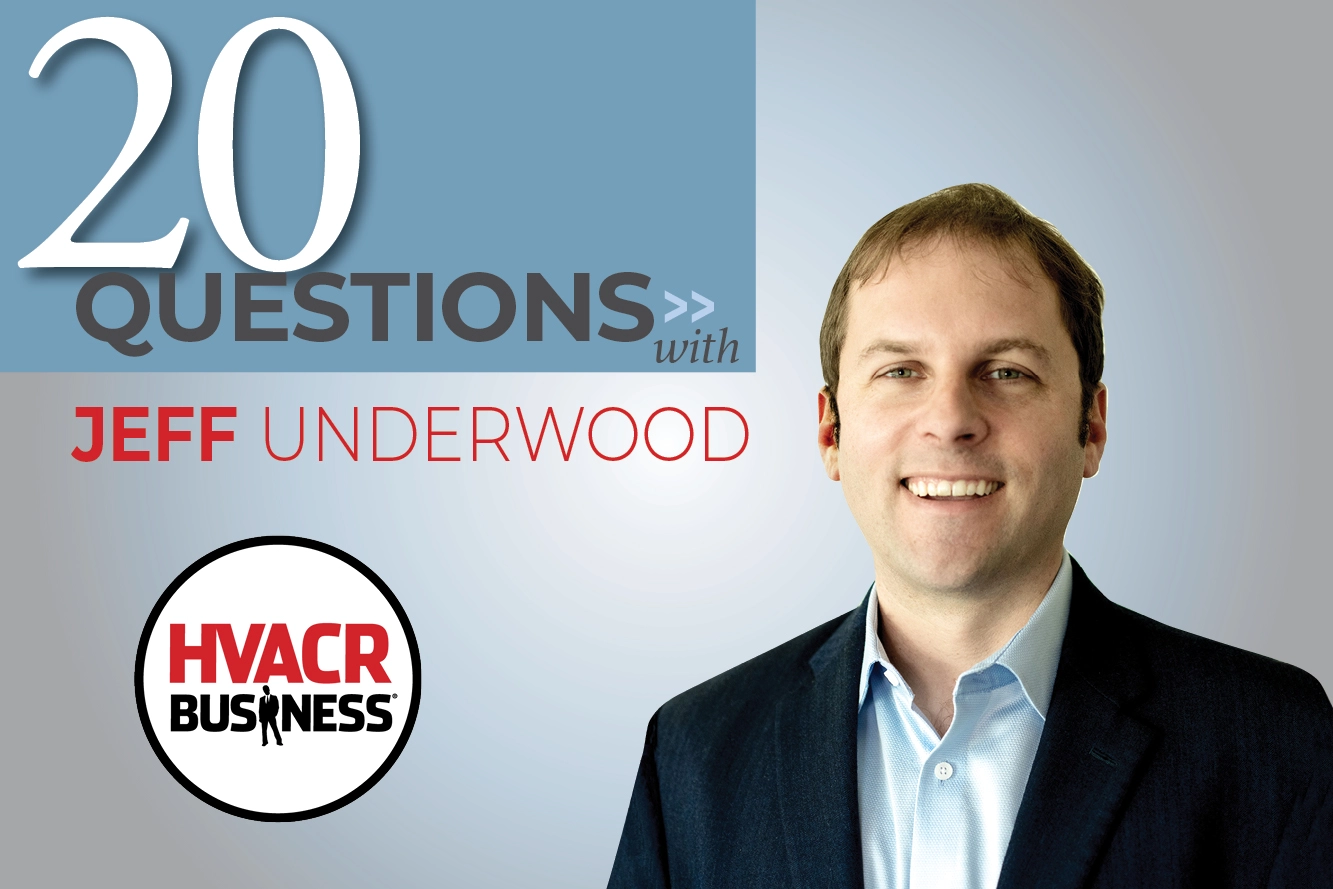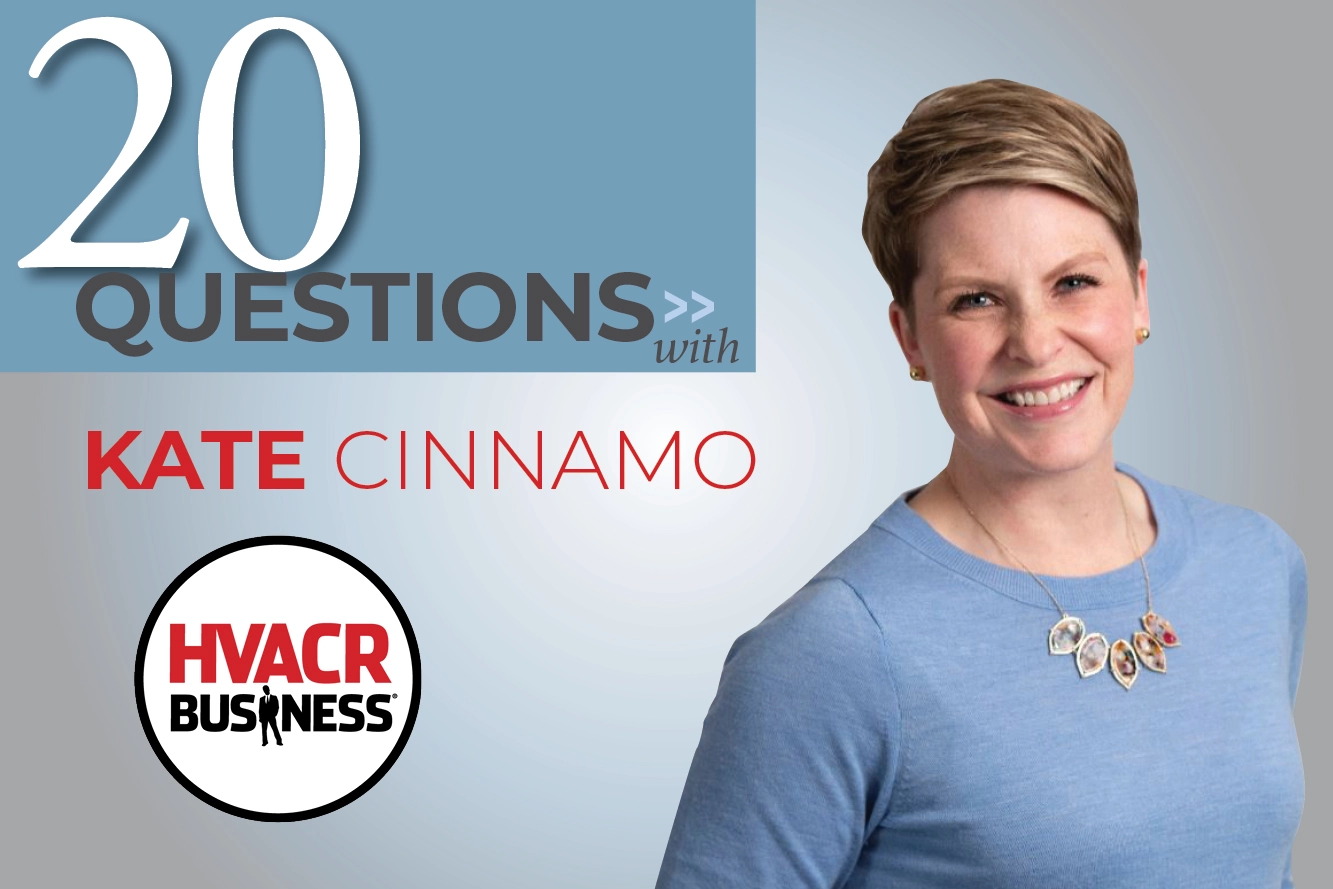Charles Lipman, CEO of DiversiTech Inc., an Atlanta-based manufacturer of air conditioning condenser pads and a leading supplier of components and related products for the HVACR industry, met with Publisher Terry Tanker to discuss politics, risk, entrepreneurial spirit and business philosophy. These concepts helped DiversiTech, which had modest beginnings in 1971, grow into a diverse company with over 8,000 product SKUs.
1. Do you have a favorite hobby?
I play tennis. I’ve been doing that since high school, which is more than a year or two ago.
2. you have a United States Tennis Association rating?
Yes, a C.
3. Do you play competitively?
Not anymore. But a group of friends and I go on trips twice a year and play a lot of tennis.
4. What other hobbies do you enjoy?
Playing bridge. I’ve played bridge since my freshman year in college, which is also a couple of years ago.
5. Do you have an interest in the poker craze that seems to be everywhere?
I don’t play it often, but I am intrigued by Texas Hold ’Em. It’s a great game. It’s got the elements of skill and simplicity, and there are not many things you can do that have a high level of skill and are so transparent.
6. The reward/risk factor isn’t bad either – right?
Yes. When you have money involved, the opportunity to win games has a special attraction.
7. You started your business career as an attorney. Do you still practice?
No, I haven’t practiced since 1983 when I took over DiversiTech.
8. How did you get involved with DiversiTech?
I had a financial interest in the real estate and I was involved in obtaining investors for the DiversiTech business, it had some financial problems.
9. But in the end you became “the” investor?
Correct. Attorneys are known to be arrogant — and possibly for good reason. I believed at the time that I knew a lot more about business than my clients did, which was totally wrong. But because I believed that, when the business got into trouble I thought, well, gee, I can come over and help and maybe turn that around. And that was the opportunity. I really worked very hard to learn the business. I learned that I didn’t know anything, but I also learned what I needed to know.
10. Was this when you became an entrepreneur?
People use the term entrepreneur, but I prefer risk-taker. That’s what an entrepreneur is, a risk-taker. From my experience, success is more driven by your appetite for risk than it is by any other ingredient that you may personally possess.
11. When did you realize you had an appetite for being a risk-taker?
Risk-taking comes naturally to me. Business has always intrigued me; so as a natural part of that, I have little fear of risks. What I always consider is that making mistakes is a necessary part of business. Just make sure that the mistake you make is not so catastrophic that you irreparably damage the business.
12. Looking back, what have been the keys to the growth at DiversiTech?
I guess it has a lot to do with taking risk – managed risk. But the most important key is attracting a core group of talented people. The final key is having confidence — confidence in each other and our abilities.
13. What’s your management philosophy?
Do the right thing. I guess that’s trite. Do the right thing and ask about consequences second. I do believe that almost everyone can agree on what the right thing is; they know what it is.
14. What do you view as your most important job?
Accepting other people’s concepts, ideas, and plans and ensuring that we have the resources to implement them.
15. How do you keep on track and stay focused?
I set my objectives once a week, and then review those the following week, and remove the 20ones I’ve accomplished, and add new expectations for myself. It’s a cycle.
16. What aspect of the business is a continual challenge for you?
I have found that non-entrepreneurs, which by my definition would be anyone who’s not (financially) at risk, have the tendency of not wanting to take risk. I’m always trying to get them to experiment and try new things and to move in new directions. It’s OK to make mistakes and then adjust once you acknowledge a mistake.
17. What’s your best internal communication tool?
I like to write because it gives me the opportunity to use the right words and the right sequence and make sure that I have said things exactly as I wish to say them. I think I’m a much better communicator in writing than I am orally.
18. What is the most effective motivational tool to keep employees engaged?
If we’re taking it in the narrowest sense of how you get people to do more than what they’re doing, I think you have to bond them to the organization. Employees want to get bonded to an organization that they respect and feel like they are part of. They want to know they are valuable, that they contribute and are part of the operation and part of the growth of the business.
19. What are your top concerns for the next three years?
The economy is certainly No. 1. But I feel our company can grow even in a tough economy — it just will be more difficult. The other concern is to speed up new product development without degrading quality.
20. Politics has been dominating the news — do you have any concerns with the upcoming elections?
I have this philosophy: In sports terminology there are the players, the rule-makers, and referees. We are players, so the rule-makers can do what they wish, the referees can call them as they seem them, but we’re going to be the players and play the best we can given the current rules. Because of this philosophy I try not to spend much time worrying about what the rule-makers are doing.






